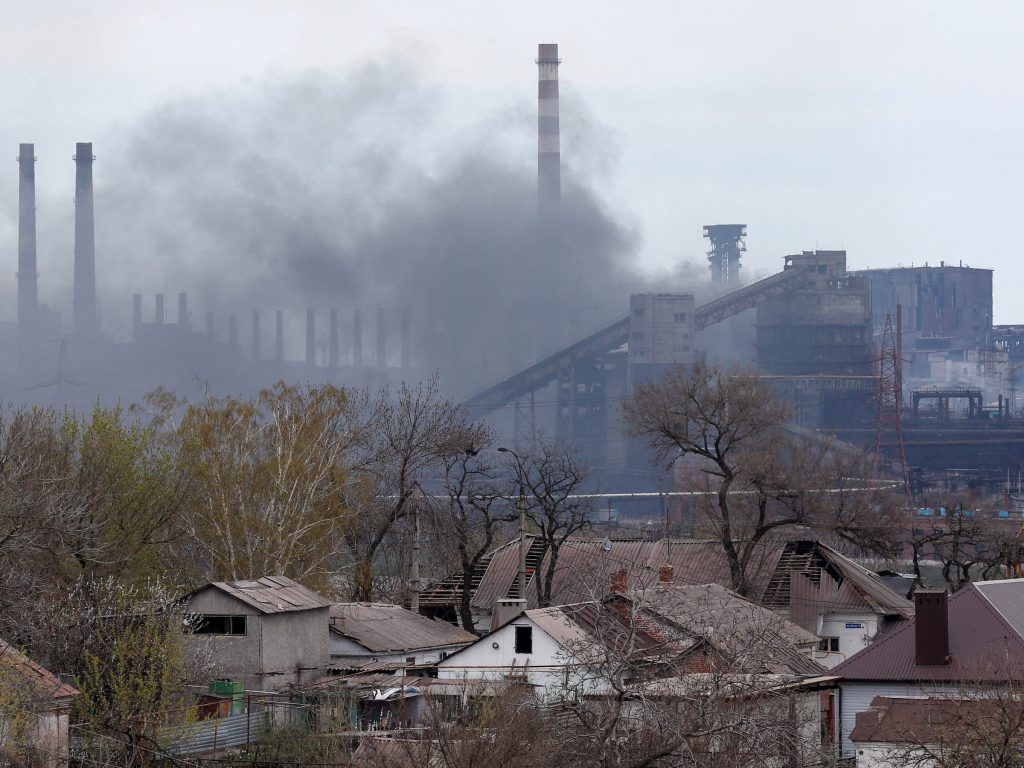The commander of the last Ukrainian forces defending the port city of Mariupol, speaking early this morning from the steel plant under siege by Russian troops, told Insider that he and his soldiers will not surrender.
"We're not even considering that possibility," Major Serhiy Volyna said in an interview conducted via WhatsApp, speaking in calm, measured tones with the voices of his troops audible in the background. "We won't lay down our weapons."
Hours later, Russian President Vladimir Putin called off an assault on the Azovstal steel plant, where hundreds of Ukrainian troops have taken refuge in a network of underground bunkers built by the Soviet Union, saying such a move was "impractical." In a televised meeting, Putin called on the Ukrainians inside the plant to lay down their arms, insisting that Russia would guarantee them "their lives and dignified treatment."
But Volyna, citing Ukrainian soldiers who were killed by Russian-backed forces in 2014 while waving the white flag in the town of Illovaisk, said he did not believe Putin's assurances. In fact, he told Insider, Russian forces continued to bombard the steel plant even after Putin declared that he had "canceled" the assault.

"The shelling has lessened a bit, but it continues," Volyna said. "We're fighting to our last strength. The enemy has an advantage in equipment, supplies, personnel, weapons, the ability to maneuver, artillery, sea and air — literally everything."
Volyna, who has fought in Mariupol since Russia's invasion in February, told Insider that "hundreds" of civilians are huddled with his forces inside the plant, including women and children. Many, he said, are wounded and need medical attention. With Russia now blockading the plant, those inside are being forced to choose between starvation and surrender to forces that have already engaged in the documented killing of unarmed civilians. Russia has made numerous failed attempts to capture the fortified plant, using troops, artillery, and air strikes.
There are talks between Russia and Ukraine to coordinate the evacuation of civilians from Mariupol, but similar plans elsewhere have failed. Volyna said the civilians inside the steel plant are skeptical of the plan, having seen Russian forces attack residential buildings and a maternity ward.
"They don't trust the Russians and don't trust the green corridors," he said, referring to pathways established for evacuations. What is needed, Volyna said, was an extraction supervised by the international community.
"It is possible to give life to the soldiers and civilians who have been under full siege for 56 days," he said. "We are waiting for help, and so we are forced to turn to the world."
Mattathias Schwartz is a senior correspondent at Insider.
Michael Fedynsky is a former Fulbright student in Kyiv who now works in international development. He is based in Washington D.C.
Dit artikel is oorspronkelijk verschenen op z24.nl
